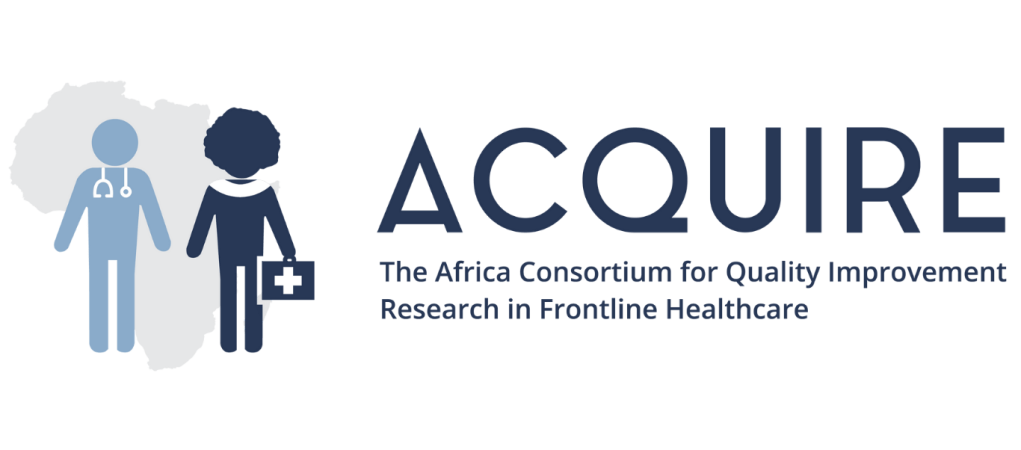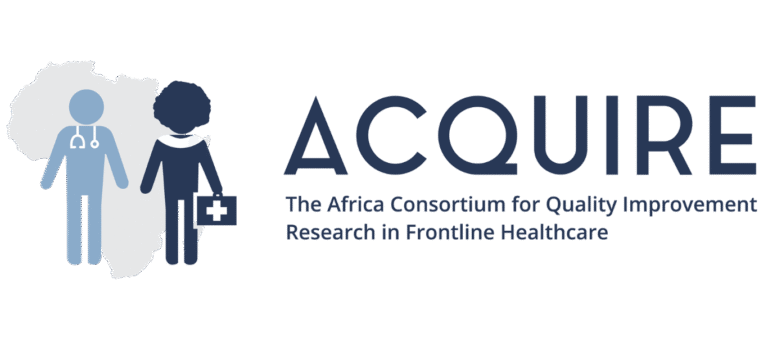Have you ever spent time in a room of dedicated health professionals talking about Quality Improvement (QI)? If you have, you will quickly notice one constant question: “What is the measurable impact?”
What is the measurable impact of training 200 health workers or 1000 in the QI theory? Of what value is rolling out a QI intervention in 3 countries? Was this beneficial to health workers, health systems, or most importantly, the patients?
That question, “What is the measurable impact?” matters. According to Dr. Peter Lachman, an ACQUIRE board member, this recurring question is central to creating a learning system that constantly studies what works, how it works, what can you do to make it work better, and how to make the positive changes stick.
Is doing a PDSA Cycle a research question?
When Healthcare Workers (HCWs) implement a Plan-Do-Study-Act (PDSA) cycle, they are not only rolling out a task but also asking a fundamental research question: “What is the possible outcome of this change?” This is where the act of doing QI itself automatically becomes a learning opportunity. Did the change make a measurable impact? Did things change for the better for the patient? To deliver meaningful change, HCWs have to carefully capture what they are learning. This positions them to avoid repeating the same mistakes, doing those things that did not work in the past, and opens their eyes to see creative possibilities and look for ways to make the system better.
ACQUIRE’s theory-based and experiential leadership training programs are grounded in continuous learning, where each intervention within every learning cohort contributes to a broader process of inquiry. At ACQUIRE, we are always asking:
- What is the best approach when it comes to training health workers across different cultures and cadres?
- What are the key comparisons between in-person and online training models in the African context?
- How many coaches are required for each Q1 team, and what would be the ideal meeting frequency to streamline performance-driven results?
- What is the best approach to take for training coaches?
How do we move learning beyond departmental silos toward system-wide change?
In many parts of Africa, QI happens in silos. Different donor-funded programs, NGOs, and agencies land, each having their targets, their priority outcomes, and their timelines. Even within the same hospital, those doing diabetic care, reproductive health, or treating chronic diseases, may all be in the same place without necessarily ever moving outside their departmental silo and speaking to one another. ACQUIRE wants to change this narrative, breaking down silos and seeing the healthcare system change to better serve patients.
In building a QI culture, our healthcare systems in SSA must move towards:
- Integration, not isolation.
- Local-led priorities, not donor-driven targets.
- Focus on not just training and implementing but also studying, adapting, and evolving how we learn.
Supporting a Q1 team during an intervention and walking away and finding that they are still doing it months or years later is a distinct measurable impact. The sustainability of a critical mass who all understand and champion QI practice is where real systems change lives. That’s why sustainability and scale-up are not afterthoughts. They are core to the research questions ACQUIRE is curious about:
- What kind of leadership ensures that QI takes root within an institution and healthcare system?
- How can we train clinical teams to not only implement QI practice but also lead QI thinking and culture change?
- Will the Quality Improvement work in a government hospital in Kenya, and whether the same model works in Cameroon? Do different contexts require a different theory of change?
Bottom line? Quality Improvement is not just an intervention with a plan-do-study-act cycle. It is not just a training course. It is a platform for continuous learning and improvement, and the only way to prove learning and improvement is happening is to measure it.
A Chance to contribute to the “What is the measurable impact?” conversation
ACQUIRE’s theory and experiential leadership training programs seek to demonstrate how implementation research, grounded in context and guided by curiosity, can create the kind of sustainable QI systems change that African healthcare workers and patients deserve.
Read more on ACQUIRE’s leadership training programs here.






